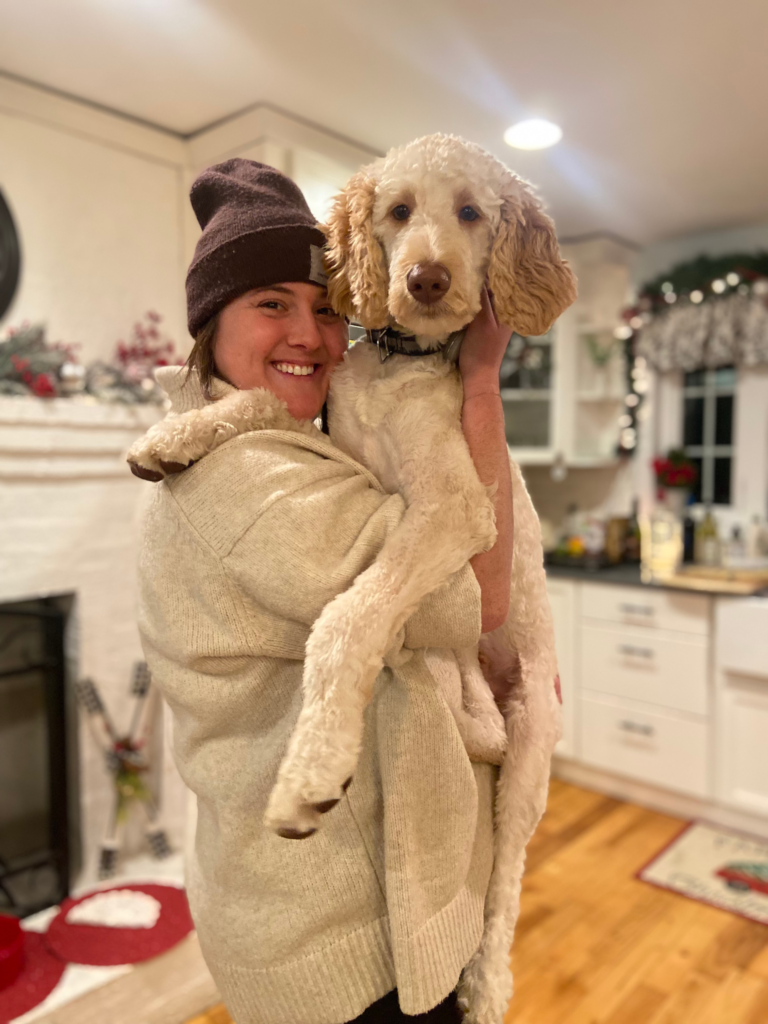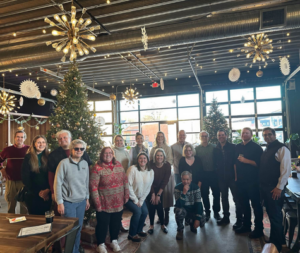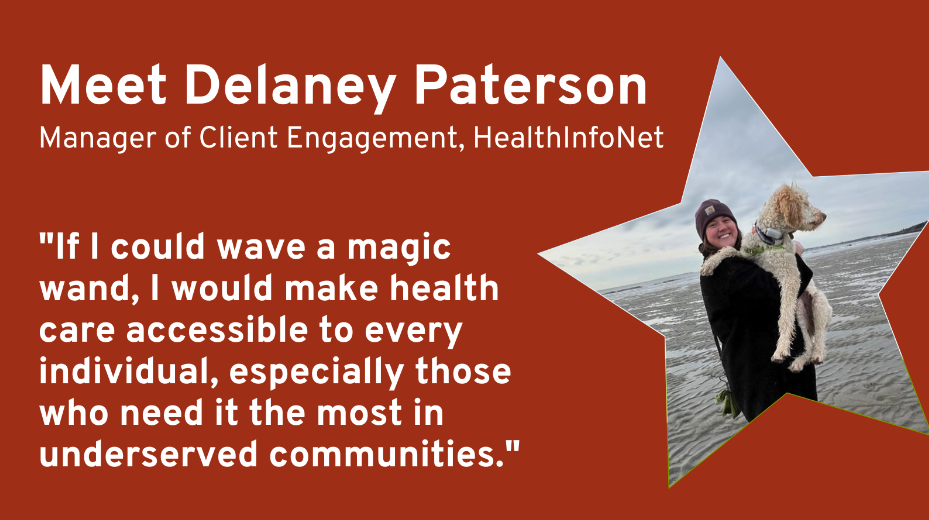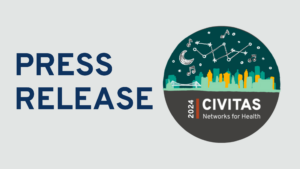Civitas is excited to announce that we will be creating stories featuring our members’ staff. We want to continue to showcase the tremendously talented and dedicated people across our network who are working hard to realize their organization’s mission and assist in improving the health of the communities they serve.
 Meet Delaney Paterson
Meet Delaney Paterson
Introduction
Delaney: I’m Delaney Paterson. I am the Manager of Client Engagement at HealthInfoNet, and my role is to be the HealthInfoNet resource for our clients, also known as our participants. I am the first point of contact when organizations want to join the health information exchange, which services the entire state of Maine. For background knowledge, the population of Maine is in the ballpark of 1.4 million residents.
How long have you been involved in the work that you do? When did you start working for HealthInfoNet?
I’ve been involved in health care since 2016, and I joined the HealthInfoNet team in November of 2021. It was a natural transition. Before working here, I was working at MaineHealth, which is the largest healthcare system in the state of Maine. I trained physicians on MaineHealth’s electronic health record system, Epic. I also worked for MaineHealth’s marketing communications department, and I supported their digital content development team. I also dabbled with insurance and long-term disability, so I gained an understanding from the patient’s perspective as they were seeking care and the financial support that they needed to obtain medical services.
What motivates you to do this work?
What sparks me — great question! Everybody knows the health care system is broken in America, and arguably across the world. There are a lot of pockets within health care that can be looked at and changed to help make it better. I really want to be able to give patients the most streamlined care possible. With a health information exchange, it is kind of a no-brainer! It gives you the ability to keep most patient health information in one place. Personally, I’ve had family members that have experienced the ramifications of not having their health records readily accessible which delayed their care.
I really love that we are on the front lines. Even though we don’t have direct patient contact, we are directly making an impact on the patient’s care because we are able to provide data and services for health care organizations that participate with HealthInfoNet. One favorite part of my job is when I get the opportunity to speak with our provider groups and introduce them of the HealthInfoNet services they may have not known about previously.
For example, I let our providers know that we deliver real-time notifications. I speak with them, and I say, “This sounds like a perfect use case for utilizing our notifications. Are you familiar with this?” I explain it to them, and they are usually thrilled to hear about the utility and our capabilities. Often, I get a report back explaining their experience using our tools. They say, “We are now able to follow up with our patients timely, instead of waiting weeks for the discharge summary from the hospital.” Seeing the excitement on someone’s face because we made their job easier is really rewarding for me!
Would you mind briefly sharing about key projects that you are working on with HealthInfoNet?
One of our main project focus right now is our Social Data Health Action Plan. The action plan is allowing HealthInfoNet to speak with many health care organizations across the state and Federally Qualified Health Systems which focus more on community health. Our goal is to bring them together and gain an understanding of their involvement with social health data, with key questions such as, how are you collecting social health data? What are you doing with it? Where is your data housed? Can this data be shared?
We are asking these organizations to provide a background of what they’re doing with this information. With this information, we can find solutions for sharing this data in our HIE. We are assessing what each individual organization reports back to us and finding ways to enhance their ability to share data.
Are there any communities within your regional purview that HealthInfoNet can potentially have the most impact on?
Another great question! Maine has an aging population; we are the oldest state in the nation. With age comes increased health care needs, so I would say that one of our largest impacts can be on older adults. Part of our current initiative right now within social health is incentivizing agencies that focus on older adults, such as the Area Agencies on Aging (AAAs). We encourage them to join the exchange at a reduced rate. By doing this they can utilize HealthInfoNet to determine how they can best provide services to the aging population in Maine.
An example of this is how some of our AAA participants use our notification services to inform their food delivery services for patients across the state. AAAs can set up notifications for patients to determine whether they’re admitted to the hospital. If their patients are in the hospital, they know when to not deliver meals to someone in need. Alternatively, AAAs can receive a discharge notification so that they know when their patients are out of the hospital and can resume food delivery services.
If you could wave a magic wand, what would be the most challenging issue within your industry that you would solve?
Broadly speaking from a personal standpoint, I would increase overall access to health care. There are a lot of rural areas in the state and in the country where people do not have readily accessible treatment. Even for some people who have available treatment access, I think there is still a barrier to seeking care because some people do not want to visit the doctor. If I could wave a magic wand, I would make health care accessible to every individual, especially those who need it the most in underserved communities.
Access issues are complex; it is more than transportation, and it is more than physically being capable of going to the doctor. It is the financial resources that enable people to afford health care, and it is also health care literacy. There are so many social determinants of health and unmet social needs that play into their ability to access care.
When you’re not working, how do you spend your free time? Tell us a couple of your favorite past-time activities!
I’m glad you asked! So, the biggest thing that I do for fun is hanging out with my dog because I just adopted him in October. I love taking him to the beach. We can literally spend hours there playing fetch. He keeps me active and busy! In addition to spending time with my dog, living in Portland has afforded me the opportunity to try a wide range of different cuisines! I have really enjoyed eating my way around Portland because the restaurants here are truly amazing. We were named restaurant city of the year by Bon Appetite magazine a couple of years ago. One thing I would love to see here is more authentic international food options. I am a big fan of Malaysian and Ethiopian food!
Final Thoughts?
I could talk for hours about the work that we’re doing! We are one of the most experienced health information exchanges in the industry, we have a lot of services and knowledge under our belt. We provide a lot of critical support, and we have unique opportunities to serve certain populations!



